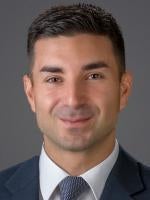On August 19, 2020, in Marquardt v. Carlton, et al., No. 19-4223, the U.S. Court of Appeals for the Sixth Circuit reversed summary judgment for the City of Cleveland on a former employee’s claim that the city had terminated his employment in retaliation for his exercising his rights under the First Amendment to the U.S. Constitution. The city had discharged Jamie Marquardt, an emergency medical services (EMS) worker, due to inflammatory social media posts he allegedly made regarding the police shooting of 12-year-old Tamir Rice in 2014, which garnered national attention. The Sixth Circuit’s decision applies only to public employers, but it is noteworthy because it sheds light on how courts determine whether an employee’s off-the-clock social media speech constitutes a “public concern” so as to warrant protection under the First Amendment.
Background
In November 2014, Cleveland police officers responded to an alert claiming that a male was pointing a pistol at people at a Cleveland recreation center and park. The officers arrived on the scene and shot and killed the suspect. The purported “suspect” was, in fact, 12-year-old Tamir Rice and the “pistol” was a toy. This incident made local and national headlines and was followed by protests about police officer use of lethal force.
Marquardt was a captain with the Cleveland Emergency Medical Services (EMS). Approximately 14 months after Rice was killed, disturbing posts containing dehumanizing language appeared on Marquardt’s social media feed expressing satisfaction with the killing. The posts were removed from Marquardt’s social media feed within hours. Marquardt denied making the posts and instead claimed that “an acquaintance” with access to his phone had made them while he was sleeping.
Several Cleveland EMS employees expressed concern about the posts. The City of Cleveland ultimately terminated Marquardt’s employment. Marquardt’s termination letter advised him that he had violated the City of Cleveland’s social media policies and that his posts “‘did not involve a matter of public concern.’”
Marquardt sued under 42 U.S.C. § 1983, which gives public employees a cause of action for public employer violations of the U.S. Constitution. Marquardt alleged his employment had been unlawfully terminated in retaliation for his protected speech in violation of the First and Fourteenth Amendments. The district court granted summary judgment to the City of Cleveland, concluding that Marquardt’s posts were not protected speech because the speech involved a matter of private interest—not of public concern.
The Sixth Circuit’s Analysis
To determine if a public employer unlawfully retaliated against an employee for the employee’s speech, courts ask three questions: “one, whether the employee engaged in protected speech; two, whether the action taken against the employee would discourage an individual of ‘ordinary firmness’ from engaging in the activity that led to his discipline; and three, whether the employee’s protected speech was ‘a motivating factor’ behind the adverse action taken against the employee.”
Here, the Sixth Circuit focused only on whether Marquardt’s social media posts constituted “protected speech” under the first prong. The Sixth Circuit stated that to resolve a question of whether an employee engaged in protected speech, it employs “a separate two-part test.” It first asks whether the speech was on a “‘matter of public concern,’” and if it was, it “balance[s] the interests of the employer and employee, asking whether the ‘employee’s free speech interests outweigh the efficiency interests of the government as an employer.’”
The district court granted summary judgment for the City of Cleveland because it determined that the social media posts had not addressed a matter of public concern, and instead related to the author’s personal interest in Rice’s death. The district court therefore did not address whether Marquardt’s free speech interests outweighed the efficiency interests of the City of Cleveland. The Sixth Circuit held that this was a reversible error for three primary reasons.
First, the Sixth Circuit noted that the fatal shooting of Tamir Rice had sparked “fierce public debate over whether the officers’ actions were justified.” To demonstrate this point, the Sixth Circuit cited various national and local news stories published in or around the time that the social media posts were made. Second, the court observed that the author of the posts “seem[ed] to assert that Rice’s shooting was justified because he was ‘terroriz[ing]’ people by pointing a gun at them,” and that “[Rice] … should not be treated as a hero by Clevelanders.” The Sixth Circuit held that these aspects of the posts directly related to a “‘subject of general interest and of value and concern to the public.’”
Finally, the Sixth Circuit was careful to note that as a matter of law “the shocking and no doubt painful aspects of Marquardt’s comments,” which included profanity, racist language, and an expression of pleasure in Rice’s death, did not, by themselves, “alter the broader subject of the speech or transform it into a ‘personal grievance.’” In so doing, the Sixth Circuit further noted that “expressions of opinion, even distasteful ones, do not become matters of personal interest simply because they are phrased in the first person or reflect a personal desire.”
For these reasons, the Sixth Circuit reversed and remanded the case to the district court.
Key Takeaways
Employers are navigating in a time of a global pandemic, political protests, hate crimes, racial tensions, economic disruption, and a potentially divisive upcoming U.S. presidential election. Employees increasingly use their off-the-clock time to make political and social statements on social media. Public employers may want to be mindful of the Sixth Circuit’s decision in Marquardt as they make employment decisions that implicate free speech. Despite the toxic language and views expressed in some social media posts, the Sixth Circuit held that “these disturbing first-person sentiments do not, as a matter of law, alter the broader subject of the speech or transform it into a ‘personal grievance.’”
Importantly, the Sixth Circuit did not decide whether the speech in Marquardt was actually protected. Instead, it remanded the case to the district court to address whether Marquardt’s free speech interests outweighed the interests of the City of Cleveland in the efficient administration of its duties.
As public debate continues to intensify, the Sixth Circuit’s holding in Marquardt will only become more salient for public employers.




 />i
/>i
